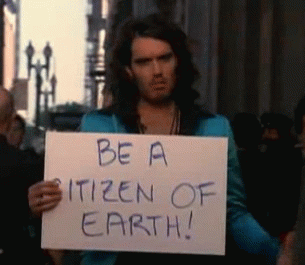(Article changed on December 2, 2013 at 16:17)
(Article changed on December 2, 2013 at 16:02)
Civilization or civilisation n. an advanced stage or system of human social development
(Concise Oxford English Dictionary)
Something BETTER than civilization is awaiting us.
(Daniel Quinn, Beyond Civilization)
How is that possible? One must be wrong, and it must be the second one because we know that civilization is all; we know that to be civilized is the pinnacle of human achievement; we know that we are better than what has come before us.
And that's why Daniel Quinn is right.
I'm not certain you understand what I'm saying. For sure, you probably get the meaning of the words and the sense of the syntax, but if the rest of this society is anything to go by, the chances are that you don't understand -- yet. Forgive me if you do: if you truly understand, and you agree that something better than civilization is awaiting us, get on and start finding it; help others to find their better future too; hasten the end of the thing that so many of us are enamoured with. Stop reading.
Where are we now?
Half the world's tropical and temperate forests are now gone. The rate of deforestation in the tropics continues at about an acre a second. About half the wetlands and a third of the mangroves are gone. An estimated 90 percent of the large predator fish are gone, and 75 percent of marine fisheries are now overfished or fished to capacity. Species are disappearing at rates about a thousand times faster than normal. The planet has not seen such a spasm of extinction in sixty-five million years, since the dinosaurs disappeared. Persistent toxic chemicals can now be found by the dozens in essentially each and every one of us.
This summary, written by one of the most eminent living environmental analysts, James Speth tells the tale of awful side effects, the kind that only became possible -- imaginable, even -- with the rise of Industrial Civilization. Civilizations have come and gone, like the flooding and ebbing of tides across the globe and throughout time: they appear, they take from the Earth, they grow, they become exhausted and they, invariably, collapse spectacularly. Civilizations are all different to a certain extent, but all of them leave their imprint in some way.
How To Be Civilized
It's such a grand term: Civilization. But it is really just a word, like "leaf", "stone" or "baby", that has defined itself in the highest sense possible -- "civilization" speaks to us with such importance because it demands to be heard, and hear we do, by defining ourselves in its image"
Civilized
Civility
Civil
Citizen
They all mean the same thing, in truth: City Dweller. The most
obvious physical manifestation of civilization is the city, something
totally alien to any uncivilized culture. Cities are one manifestation;
there are others that are less physical, but no less integral for all
that. According to the influential but now sadly defunct Anthropik Network there are five key features that are common to all civilizations:
1. Settlement of cities of 5,000 or more people.
2. Full-time labour specialization.
3. Concentration of surplus.
4. Class structure.
5. State-level political organization.
The four other features all require structures and systems in order to operate as effectively as possible so, for instance, in order to concentrate surplus food (so it can be given out, or rather sold, on demand) you must, as a civilization, have storage and distribution systems, the means to generate that surplus in the first place (i.e. mass agriculture), accounting processes and, of course, a means of asserting authority over that surplus. This feature and, in fact, all of the five features listed, point to the primary function of civilization: a tool through which power and wealth can be accumulated by a select few.
If you don't believe me, then look at the history of all civilizations, past and present, long and short-lived, large and small: they all begin in the same way -- a small group of people wish to obtain more of something they haven't got, but cannot do this within a communal or tribal culture; they therefore, through a combination of force, propaganda and corruption, create something over which they have authority. The city becomes the realisation of civilization because within a city -- as opposed to a sparsely populated series of small settlements -- it is far easier to control the activities of the population. The city also acts as a symbol of the power of the civilization, can be easily defended, and can provide the highest-ranking members of the society a base from which their activities may be conducted.
(Note: You can view every article as one long page if you sign up as an Advocate Member, or higher).






